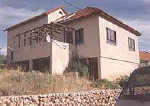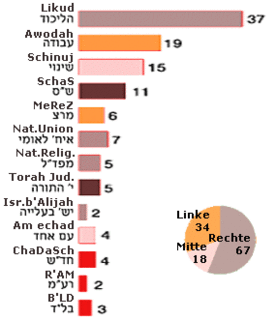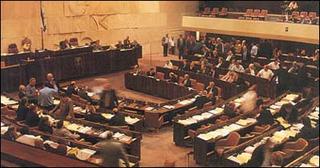More than 30 Orthodox rabbis in Melbourne have signed a
petition declaring Israel’s disengagement from Gaza is “suicidal surrender” which is forbidden under any circumstances.” The list is comprised almost entirely of Chabad Rabbis.
They claim “experience has taught that even mere negotiation of handing over settlement increases Israel’s enemies brazen desire to intensify their attacks against us.” Not much room for optimism there.
Two things bothered me about the article. The first being that almost all the signatories were Chabad Rabbi’s. Whilst not a chabadnik myself, I have much respect for the movement and their efforts in Jewish outreach. I feel that their involvement in political matters is to the detriment of the vital Kiruv work they do in the Jewish community and turns many people off their message.
The second, was the heading of the advertisement, “A DEFINITIVE” Halachic ruling forbidding the surrender of any part of the Holy Land.”
How can the ruling be definitive if Rabbis such as Rabbi Genende and and Rabbi Steven link did not agree? Is something definitive just when Chabad Rabbi’s agree? And what about the Rabbis from Israel, such as Rav Moshe Lichtenstein of Yeshivat HaGush who writes that it is halakhically permissible, if not favourable, to withdraw in order to improve your position and your ability to secure the safe-being of the people of Israel. From Jewschool you can read:
Rabbi Moshe Lichtenstein is the son of the Gush yeshiva's esteemed rosh yeshiva, R' Aharon Lichtenstein, and grandson of the arguable father of modern orthodoxy, Rav Yosef Soloveitchik. Rabbi Lichtenstein presented a shiur on the subject of disengagement from Gaza, and offered a halakhically sound argument in favor of the withdrawal. He also made it known to us that,
if his West Bank residency stood in the way of peace with Palestine, it would be with a heavy heart, but he would in fact move.
The halachic logic being used by Chabad Rabbi’s is one of yimei HaMashiach. They forget, Israel is a modern democratic state, where none of the biblical laws are in application as the temple is not standing.
Given that thee are Rabbi’s on both sides of the debate, and I am no rabbi myself, perhaps the solution must be to follow the advice of the EXPERTS. You see, when a person is sick, and they want to find out whether or not they should eat on Yom Kippur, they ask a doctor before a Rabbi, as to what the effects of fasting will be on their health. Because the doctor is the EXPERT on health.
In matters of national security, the experts are members of the IDF and members of the Government that is democratically elected to reflect the will of the people. The experts on national security are also divided, but there are a majority of people in the Knesset and in Sharon’s own cabinet, who have voted on numerous occasions in favour of the disengagement. When Israel is run according to Jewish law, we must follow the rulings of the Rabbi’s. Until then, we should follow the next best thing. It’s called democracy.

















